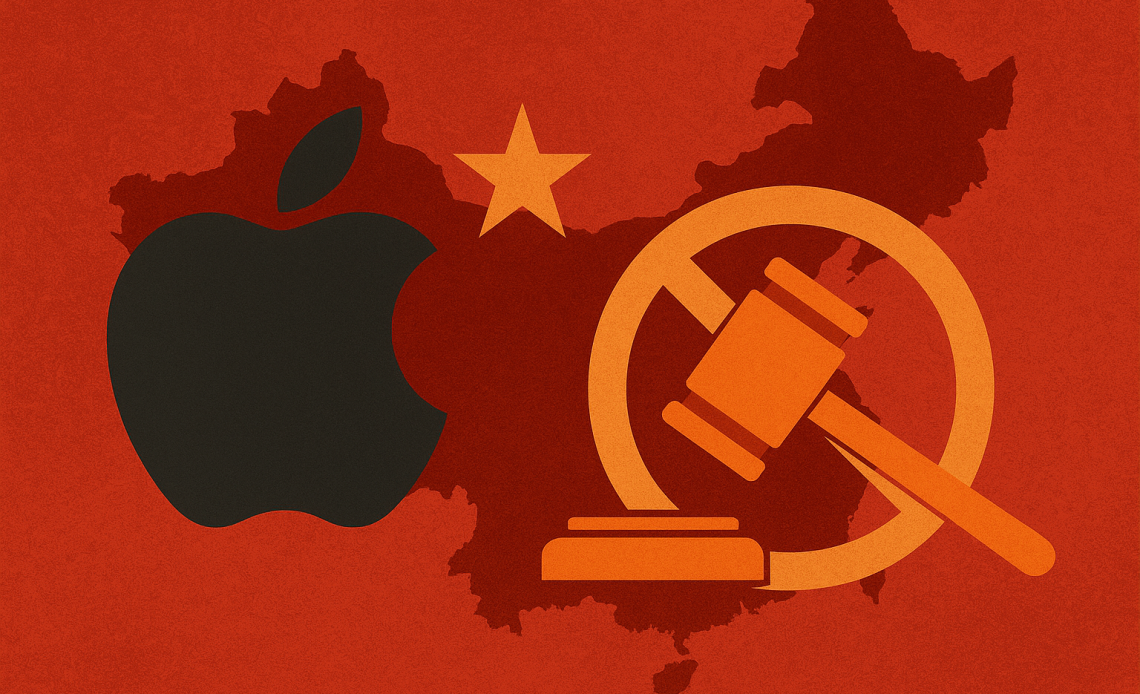
Apple is once again under scrutiny in China as 55 local iPhone and iPad users have filed a complaint alleging monopolistic practices in app distribution and payment systems.
The complaint, Reuters reports, submitted to the State Administration for Market Regulation (SAMR) on Monday, accuses the company of abusing its dominance by forcing consumers to use Apple’s own ecosystem for app downloads and in-app payments.
The move comes at a sensitive time, with trade friction between Beijing and Washington continuing to shape how technology companies operate across borders.
Chinese users accuse Apple of monopolising iOS ecosystem
Led by lawyer Wang Qiongfei, the group of complainants claims that Apple holds a monopoly over app distribution on iOS devices in China.
According to the filing, Apple restricts users to its App Store for downloading applications, while also enforcing its In-App Purchase (IAP) system for payments.
The Reuters report states that the complainants argue that this setup leaves consumers without choice and allows Apple to charge commissions of up to 30% on purchases made through the App Store.
The complaint further highlights that Apple has made changes in other major markets, such as Europe and the United States, to comply with new competition laws by allowing third-party app stores and alternative payment systems.
However, it has not extended similar flexibility to China, where iPhone and iPad users continue to face restrictions.
Case highlights widening regulatory divide between China and the West
This is not the first time Apple has faced legal challenges in China over its app store policies. Wang Qiongfei previously led a similar case in 2021, which was dismissed by a Shanghai court in 2023.
That civil case is currently being appealed to the Supreme People’s Court, which heard arguments in December. A ruling is still pending.
While the earlier case focused on civil damages, the latest complaint targets Apple through China’s administrative system, which could potentially lead to faster regulatory action.
Wang told Reuters that this route could move more efficiently through government channels compared to the earlier court proceedings.
The timing of the complaint coincides with broader tensions between China and the US, where both countries have increasingly used trade policy and technology regulation as tools of strategic competition.
Beijing’s authorities have been paying closer attention to the operations of major American tech companies, including Apple, at a time when Washington has tightened export restrictions on Chinese technology firms.
China steps up antitrust scrutiny of US tech companies
The complaint against Apple also aligns with a broader pattern of China intensifying antitrust oversight of US-based technology firms.
Earlier this year, Chinese regulators opened investigations into several major American companies, including chipmaker Qualcomm, which is being scrutinised for its proposed acquisition of Israeli auto-tech firm Autotalks.
Such actions indicate that Beijing is asserting greater regulatory control over foreign firms operating in its market, particularly in areas deemed strategically important.
Apple’s dominant role in China’s smartphone and app market positions it squarely within the government’s regulatory focus.
The company typically argues that its App Store policies are designed to protect users from fraud and security risks, while ensuring developers receive a fair platform for monetisation.
However, critics say the high commissions and lack of payment options disadvantage both consumers and app makers.
A new test for Apple’s global regulatory strategy
If China’s regulators decide to take up the case, it could mark a significant escalation in the ongoing global debate over Apple’s business model.
The company has already faced regulatory pushback in other markets, particularly under the European Union’s Digital Markets Act, which compels large tech firms to open up their ecosystems.
For Apple, the complaint in China may test its ability to navigate an increasingly fragmented global regulatory environment.
The outcome could also influence how the company structures its services in markets that continue to demand greater transparency and competition.
The post Apple faces new antitrust complaint in China as users allege app store monopoly appeared first on Invezz
